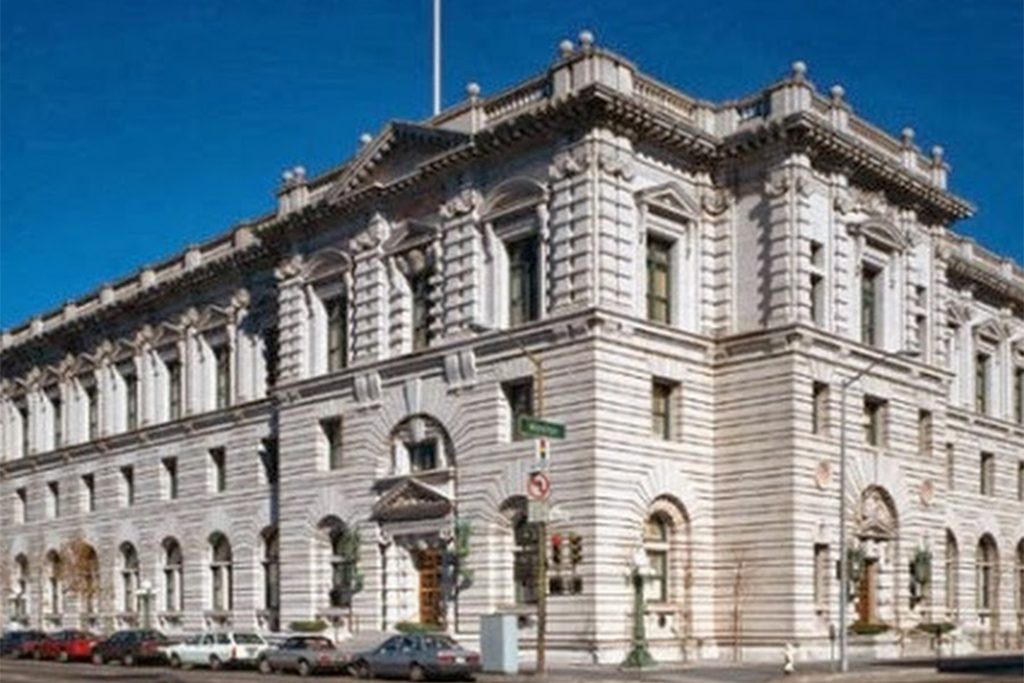Earlier this month, two Boston College Law School teams argued their cases in front of the US Court of Appeals for the Ninth Circuit. The Ninth Circuit Appellate Program (NCAP), a clinic founded by professor Kari Hong, represents indigent clients before the Ninth Circuit each year.
On April 15, BC law students Matthew Burton ’21, Brett Gannon ’21, and Cherylann Pasha ’21 represented German Paniagua-Rodriguez before the Ninth Circuit.
Paniagua, who was working in construction, had been coerced into participating in a drug running scheme run by the Sinaloa cartel. Among those recruited, the cartel had even recruited employees of the Maricopa County Sheriff’s office to assist in the enterprise. Paniagua courageously agreed to testify against the cartel members, which the prosecutor rewarded by dropping 143 criminal charges they had lodged against Paniagua.
Unfortunately, the case never went forward because the prosecutor mistakenly sent a copy of the testimonial agreement, a document usually filed under seal, to the co-defendants who were in the cartel. The cartel issued a death threat, the criminal case fell apart, and the US government-initiated proceedings to remove Paniagua.
At the lower levels, the immigration court and Board of Immigration Appeals dismissed expert evidence regarding the fact that the Sinaloa cartel, the most powerful one in Mexico, would kill Paniagua as soon as he returned to Mexico, both out of retribution for his betrayal and as a message to others who would think to cooperate with law enforcement.
Within two weeks of argument, a three-judge panel of the Ninth Circuit strenuously disagreed and granted Paniagua the CAT remedy he was seeking. The Court reasoned that, “[a]mple evidence in the record, including country reports, news articles, and expert testimony, compel the conclusion that [Mr. Paniagua] likely will be tortured.”
The case will be remanded for the Board of Immigration Appeals to reconsider Paniagua’s asylum claim as well.
“‘Wow’ is what I said when I saw the decision and the speed with which it issued,” Hong said. “This is the right result, and Matt, Brett, and Cherylann worked incredibly hard to draft solid legal arguments that were incredibly persuasive. They should be proud of their work. Today, they saved a man’s life.”
Below is the video of the the German Paniagua-Rodriguez case argument.
On April 13, BC Law students Peter Alfredson ’21, Michelle Kain ’21, and Dominic Plantamura ’21 argued their case on behalf of client Kelvin Melgar-Alas, who came to the United States when he was 10 years old.
He grew up in Los Angeles and, as a young teenager, joined the MS-13 gang. He was shot in an incident, which left him paralyzed. After obtaining his GED, he returned to the MS-13 gang and was arrested.
While in prison, he spoke to the prosecutor in a safety valve interview, a means by which a person can cooperate with the prosecutor. Melgar’s co-defendants sent a death threat to other MS-13 members in prison, calling for Melgar’s death for being a snitch. The LA police department intercepted the death threat, warned Melgar about it, and placed him in protective custody.
Based on this claim, Melgar is seeking protection from deportation under deferral of removal under the Convention Against Torture (CAT). Students Alfredson, Kain, and Plantamura argued for the CAT relief as well as a citizenship claim based on the fact that Melgar’s mother had become a citizen and sought status for him.
At argument, “the students were well prepared and very responsive to the complicated and novel legal issues in their case.” Hong said. “I was very proud of how well they did. They gave our client a fighting chance, which is the best definition of success I can think of.”
Below is the Kelvin Melgar-Alas case argument.
In preparing for their Ninth Circuit appearances, the students benefited from the time and expertise of BC alumni and immigration practitioners from around the country, who were Maria Andrade, Professor Sharon Beckman, Liz Bradley, Karen Breda, Mary Pat Brogan ’15, Bria Coleman ’19, Susan Church, Kevin Collins ’19, Sabrina Damast, Valentina De Fex ’17, Hadiya Deshmukh ’18, Carlos Estrada, Ezra Dunkle-Polier ’20, Nina Farber, KG Gasseling ’17, Kathleen Gillespie, Professor Mary Holper ’03, Brook Hopkins, Katie Horigan ’16, Merle Kahn, Yara Kass-Gergi ’16, David Kete ’13, Mary Lorenzo ’20, Jerome Mayer-Cantu, Cristina Manzano ’15, Sean Patrick McGinley ’18, Chris Modlish ’17, Joe Norena ’18, Valentina Restrepo-Montoya, Shayna Sehayik ’15, Professor Jayashri Srikantiah (Stanford Law School), Laura St. John, Professor Phil Torrey (Harvard Law School), Tim Warden-Hertz, Emma Winger ’08, Heather Youtz, and David Zimmer.
NCAP has represented 16 individuals before the Ninth Circuit. The students have prevailed in 10 of the 14 decided cases, and two cases are pending. Five of the 14 have been published.


